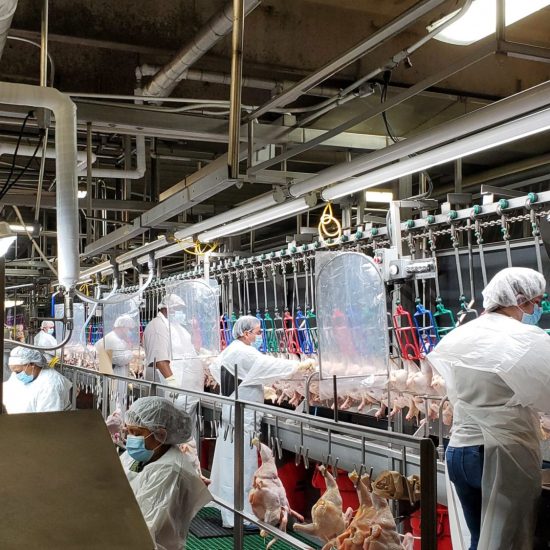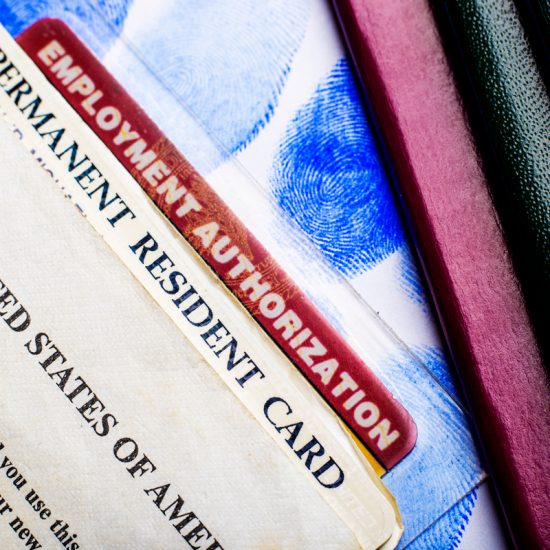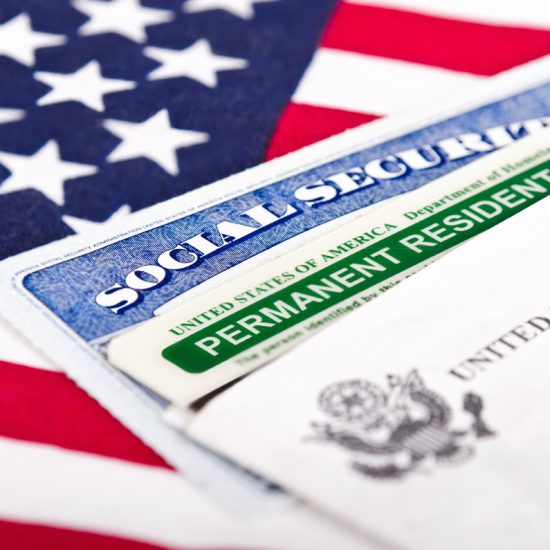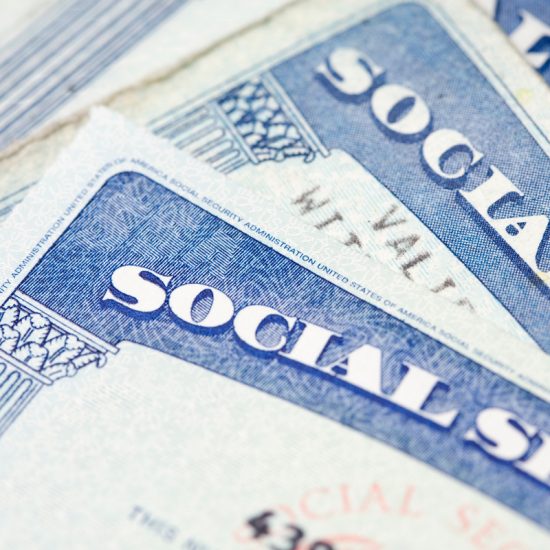The U.S. chicken industry is heavily affected by our nation’s immigration policy. We seek a stable and permanent workforce who will stay on the job long enough to become skilled and efficient, helping us to keep our food products and employees safe and helping us to sustain the rural communities where poultry facilities operate.

NCC’s policy on immigration reform is highlighted in five areas: border security; a very simple improvement to the E-verify system as an alternative to a national identity card; clarity in anti-discrimination laws; and an occupational visa category that the meat and poultry industry can use that could be tied to local or regional employment.
NCC members use every tool available to verify the identity of the legal immigration status of all prospective employees. Unfortunately, the government does not provide employers with a reliable verification method to prevent identity fraud and document falsification and confirm with confidence that new hires are legally authorized to work in the United States.

The existing temporary programs for general labor skilled workers are for seasonal labor only, which does not help manufacturers, whose occupational needs are year-round and ongoing. Congress must create a general labor skilled immigrant visa for the manufacturing industry to recognize that employer needs in industry are permanent in nature, not temporary. Employers should have the ability to recruit outside of the U.S. and sponsor workers for a defined period of time.
How the system currently works and what Congress can do to fix it
Currently, the Department of Homeland Security’s (DHS) Citizenship and Immigration Service (USCIS) maintains three different categories of documents that prospective employees must submit before being verified eligible for employment in the U.S., delineated as List A, B and C.
- List A documents prove both identity and employment authorization.
- List B documents prove just identity, such as a driver’s license or school ID card.
- List C documents prove just employment authorization.

Current law provides applicants the choice of submitting one document from List A or one document each from Lists B and C. Many prospective employees choose to provide List B and C documents, which are easily falsifiable and lack biometric identification. Currently, multiple people can earn wages on the same Social Security Number (SSN) or use the SSN of a deceased individual. E-Verify alone does not flag if the SSN presented is a duplicate or belongs to a deceased individual. The Social Security Administration (SSA) provides little cooperation or resources to employers trying to combat identity fraud.
In a situation when an applicant submits documents on List B and C, NCC believes employers should be allowed to require the use of E-Verify Self Check before hiring the individual. E-Verify Self Check is an online service that combines the use of E-Verify with an automated “Connect the Dots” program that pulls data from publicly available records and requires prospective employees to take a test on that data. Unfortunately, industry currently may not require the use of Self Check under any circumstance, before or after hiring an individual.

The SSA must be required to verify that SSNs are not being used in duplicate locations or are not matched to deceased individuals. The Social Security Number Verification System (SSNVS) can verify via Internet that employee SSN information matches Social Security’s records; however, they can currently only be used for tax and wage reporting (Form W-2) purposes. The system is also limited to matching information that is easily acquired by an individual committing identity fraud (Name, SSN, DOB, Gender). Providing employers with the additional information of duplicate SSNs or SSNs of deceased individuals can help stop identity fraud by unauthorized applicants while also alerting authorized employees that they may be the victim of identity theft. Employers who discover employees with duplicate SSNs or SSNs of deceased people should use the same DHS automatic referral process previously described.
A safe harbor should be provided for employers that voluntarily utilize the E-Verify Self Check and follow the automatic referral process. This safe harbor should insulate an employer from liability unless the government can show beyond a reasonable doubt that the employer knowingly failed to use these tools in good faith. This trade-off is only fair. An employer that does everything possible to avoid hiring unauthorized employees should not be exposed to further liability. It is the responsibility of employers to help ensure that the law is followed but it is the obligation of the government – not U.S. employers – to provide a secure worker verification system.




